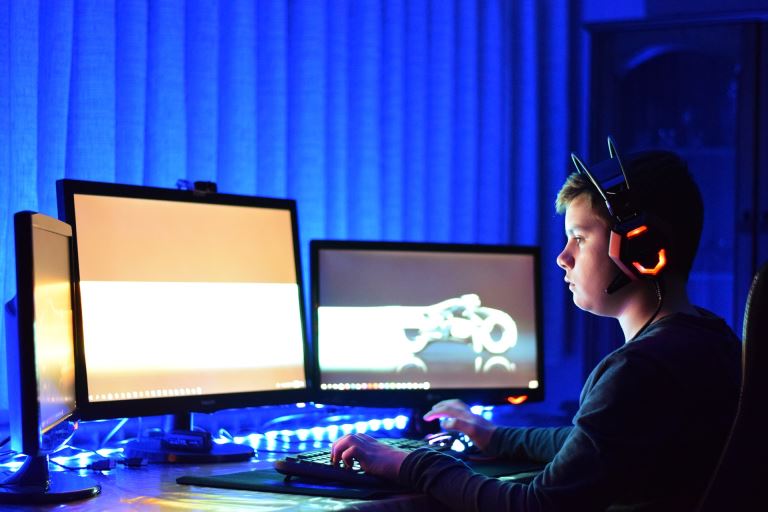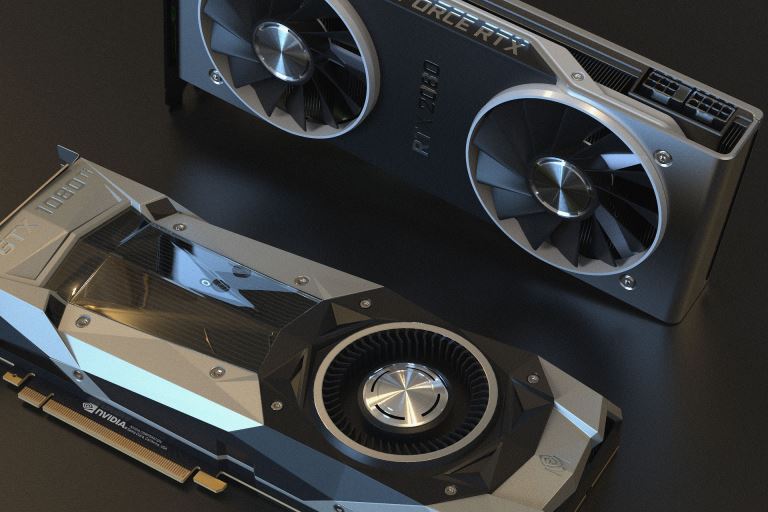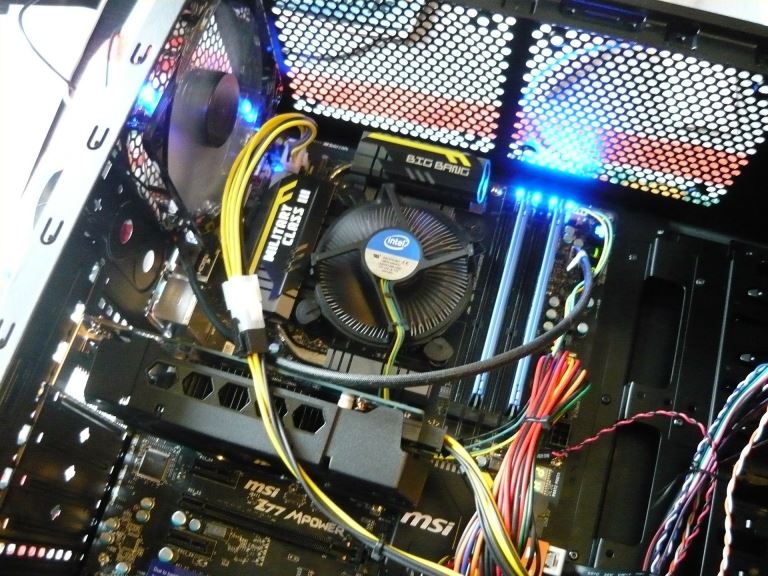
How to stop a computer from overheating when playing games?
To stop your computer from overheating while playing games, you must maximize the airflow around the system, replace mediocre or aged cooling fans, clean out the computer and stop overclocking.
As an avid gamer, you've probably spent thousands of dollars on a high-end gaming rig. So imagine your disappointment when your Desktop PC freezes or even shuts down abruptly mid-game.
The culprit here is most likely to be overheating. While modern computer components are designed to deal with heat efficiently, they may still overheat, especially when used for ultra-demanding tasks such as gaming.
Apart from the annoying freezes and blue screen crashes, overheating can damage your precious PC. To protect your expensive machines, it's essential you know how to stop your computer from overheating when playing games.
In this article, we will cover the leading causes of overheating in a gaming computer, how to track the temperatures of your components, and show you how to resolve these problems.
Why computers overheat
Almost all the components in a computer produce heat while in operation. This generated heat increases the internal temperature within the computer case.
However, some components like the CPU and graphics card will generate more heat than the others. These components typically come with their own cooling systems to dissipate the heat. And this heat must be efficiently removed from your computer case for the system to work optimally.
So if your computer misbehaves while gaming, the problem could be down to one or two specific components having cooling troubles, this could raise the ambient temperature inside your case and likely cause issues elsewhere.
Let's look at the main culprits of overheating and how they affect your computer.
GPU
The GPU or graphics card is probably one of the most critical components of a gaming PC. Unfortunately, they also generate the most heat. Most graphics cards come with one or more cooling fans, which try to cool the card as it tackles your most demanding games.
Your computer case should have at least one fan to remove the hot air outputted by the GPU's fans.
The cooling fans on your GPU will typically start spinning only when the GPU approach a specific temperature. But you're allowed to change the settings to enable the fans to start earlier to rid the GPU of heat faster. Any issues will the cooling fans will cause a tremendous build-up of heat and possibly damage your graphics card.
CPU
Your CPU comes with a stock cooling fan which typically does an excellent job of keeping it cool. But they are designed to handle the base clock of your processor. So if you prefer to overclock your system, replace the stock cooler with an aftermarket liquid or air-cooled system to take the increased heat.
If your CPUs temperature still goes up while running at its base clock, it could be from the thermal paste. The thermal paste fills the space between your processor and its cooler. But it dries out and degrades over time, which means the heat transfer is less efficient.
An improperly fitted cooler can also cause the CPU to overheat. So when you are building a new system or changing the thermal paste, ensure you follow the instructions closely.
Dust
Vast amounts of air get sucked into your computer case and a lot of dust and dirt with it. Dust particles will clog the fans, slowing them down and causing the components to heat up. These will raise the temperature of your gaming system with time and, if left unchecked, damage your system.
Poor ventilation
When your gaming computer is tucked away in an enclosed space such as a cabinet, it will be difficult for fans to expel hot air and replace them with cooler ones. Bad cable management could also block airflow from within the case and raise the ambient temperature.
Warning signs that your computer is overheating
When your systems start to freeze, crash or shut down abruptly while in use, it could be overheating. However, to confirm that your system instability issues are due to overheating, you can download free tools like the HWMonitor that monitors and displays individual components' temperatures. The simple steps outlined here stops your computer from overheating and allows you to return to your favorite game in a jiffy.
Maximize airflow
Poor airflow retains the stagnant air inside your case, raising the ambient temperature and adversely affecting system performance. This could be due to inefficient or inadequate case fans or too many cables blocking the vents.
Run your cables tidily and efficiently out the back of your PC. this will create more space for air to flow.
Also, check your case fans. Clean or replace them if they are old, tired, and clogged with dirt. If your case has only one fan, you may have to add more to increase the flow of cooler air through the system.
Position the case to create more breathing room. Ensure it's in a location with proper ventilation. There should be nothing near the computer blocking the vents, especially the back where the hot air exits.
Close the case
Contrary to popular belief, running your gaming system with the side panels off will not help to cool it — it actually does the opposite. Removing the side panels changes the pressure of the airflow and reduces the efficiency of the case fans. Again, it would allow more dust and dirt to settle on the components of your PC, further increasing the temperature.
Clean your Desktop PC
Periodically clean the insides of your PC, preferably with a can of compressed air. Dust gets sucked into your computer over time, clogging the fans and other components and reducing their efficiency.
Upgrade your CPU fan
The CPU is the most sensitive and expensive component in your PC and is prone to overheating. Unfortunately, your computer may have come with a CPU with an average fan. And while it does an adequate job of cooling the CPU, you can improve the cooling by swapping your stock fan with an aftermarket fan. Aftermarket fans come with bigger heat sinks, and so they transfer heat more efficiently.
You can also go for liquid cooling systems, especially if you overclock. Liquid systems remove the heat from your CPU by pumping cooling fluid through a system of pipes and radiators.
Check the thermal paste.
Thermal paste is a thermally conductive compound used to remove pockets of air — which could serve as thermal insulation — from the interface between the heat sink of the cooling fan and your CPU. As a result, the thermal paste maximizes heat transfer and dissipation away from the CPU.
The thermal paste tends to dry out and degrade over time. Which means its heat transfer and dissipation capabilities will reduce. So if your CPU is getting too hot too fast, you might want to change the thermal paste. Also, ensure you fix the cooler properly when installing a new one or changing the thermal paste. Finally, follow the instruction manual closely as improper fitting could also lead to overheating of the CPU.
Stop overclocking
Like an athlete on steroids, overclocking your computer gives you the best performance and pushes your components to their limits. Unfortunately, it also drives their temperature through the roof. This could damage your gaming system if you don't properly cool your hardware. You may have to reconsider overclocking if the overheating become uncontrollable.
Conclusion
Stopping your computer from overheating when playing games is easy. First, however, you must monitor your computer's temperature with readily available free tools so you can catch early overheating warning signs. You then troubleshoot the system and attack the issues head-on.
Keeping your gaming computer cool maintains the health of the components and allows them to last for far much longer so you can have a smooth and enjoyable gaming experience.







